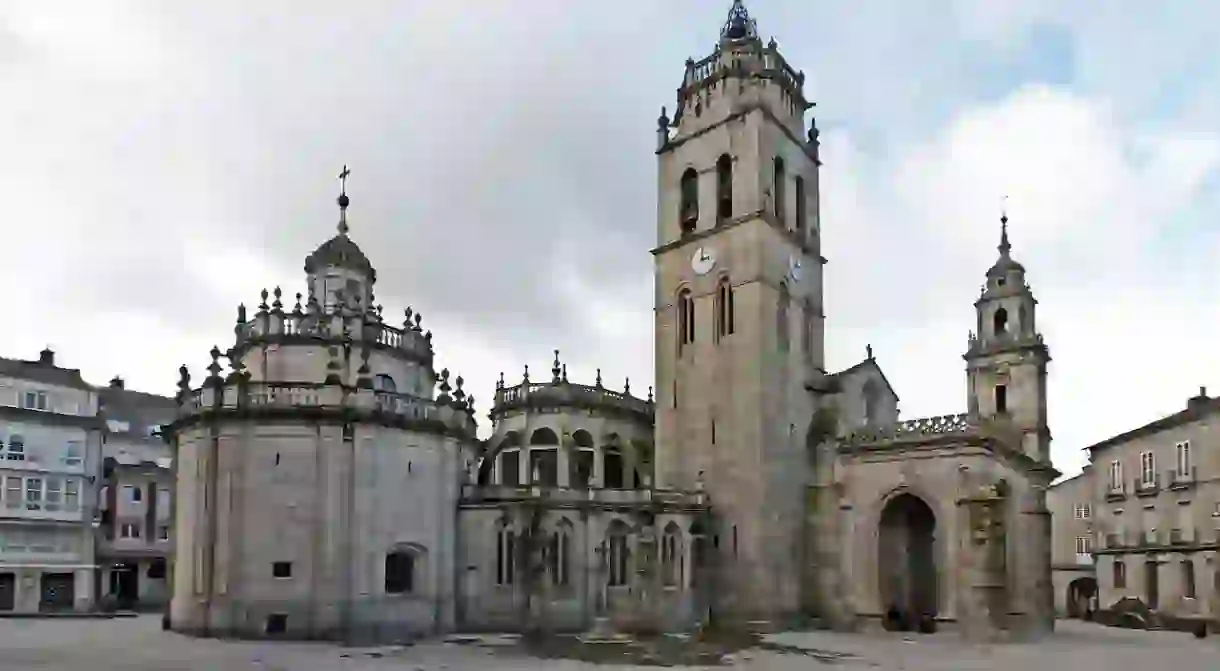12 Reasons Why You Need to Visit Galicia’s Famed Walled City of Lugo At Least Once

Lugo is a small city located in the middle of Galicia, around 100 kilometres (62 miles) east of Santiago de Compostela. This historic city is filled with ancient wonders, from Roman city walls and baths to a magnificent cathedral and delicious regional cuisine. Here are our 12 reasons why you need to visit Galicia’s famed walled city of Lugo at least once in your lifetime.
To see the most complete Roman city walls in Europe

Lugo is most famous for one thing, and that is its city walls. The walls, built by the Romans during the latter part of the 3rd century and the 4th century, are one of the finest examples of this type of Roman construction in Europe. A UNESCO World Heritage Site, they measure approximately 2,117 metres (6,945.5 feet) in total. It is possible to climb up and walk around the walls, and locals use them as a park, by going for a nightly stroll or walking the dog.
To explore the Old Town

Within those old city walls sits the Old Town of Lugo. It’s small but has an array of Baroque, Gothic and Roman architecture, as well as a web of narrow winding streets and cute little squares. It makes for a great place in which to explore and get lost.
To step back in time
Many cities in northern Spain offer brief glimpses of the past, but Lugo has so many that it feels like you’re stepping right back into Roman times with its myriad of ancient sights and historic buildings.
To enjoy its delicious cuisine

Lugo is well known throughout Galicia for its tasty regional cuisine. It has everything from fresh seafood from the Cantabrian Sea to meats, dairy and fresh vegetables from the lush farmland around. In fact, one of the best-known sayings from Lugo says ‘Y para comer, Lugo’, which translates to ‘And to eat, Lugo’. Try dishes such as tasty Galician empanadas, boiled octopus and shellfish.
To shop for traditional handicrafts
Lugo is a good place to shop for traditional Galician handicrafts such as ceramics, carved stone and furniture and handwoven textiles. Head to the Old Town for some of the most authentic places.
To visit its magnificent cathedral

Lugo’s cathedral, the Catedral de Santa Maria, was originally built in the 12th century in a Romanesque and Gothic style; however, it was changed and added to many times over the years. Its grand Neo-classical façade is the work of Sanchez Bort and dates from 1769.
To learn more about Roman history at the House of Mosaics
Head underground to the House of Mosaics, which was once the house of a wealthy Roman. Here you’ll find the remains of a gorgeous original Roman mosaic, known as the Domus Oceani, featuring both geometric shapes and motifs. At the end is an audiovisual display that shows visitors how the house might have looked in its heydey.
To tour some of the region’s most beautiful churches

Lugo is filled with beautiful churches; it’s not just the cathedral that you should visit. Some of the best include the Lorenzana church and monastery (pictured above), the Carmel Chapel, Santo Domingo Church, San Roque Church and San Pedro Church.
To walk over a Roman bridge

It’s not often that you get to walk over a bridge that’s approximately 2,000 years old; however, it’s been repaired and reconstructed over the years. Lugo’s Roman bridge crosses the Minho River, and its six elegant arches make for a great picture.
To visit the ancient Roman Baths
With its Roman walls and intricate Roman mosaics, it’s not surprising that Lugo also had its own Roman Baths, which sit just outside the city walls, within the Hotel Balneario de Lugo. The population of the town during Roman times used them to clean themselves; they also relaxed in hot steam rooms and visited the cold rooms to improve circulation.
Provincial Museum

Housed in some of the rooms of the old San Francisco Convent, as well as a new building, the Provincial Museum gives visitors a great overview of the history of the area and Galicia itself. It houses everything from religious art to ceramics and glass, paintings and sculpture.
To visit the Ribeira Sacra region
The Ribeira Sacra region is a natural area full of forests, meadows and rugged gorges and lies not far from Lugo. It’s known for its nature, as well as its excellent vineyards and wineries.
To learn more about Spain’s Galicia region, read our article on 10 things you didn’t know about Galicia.













